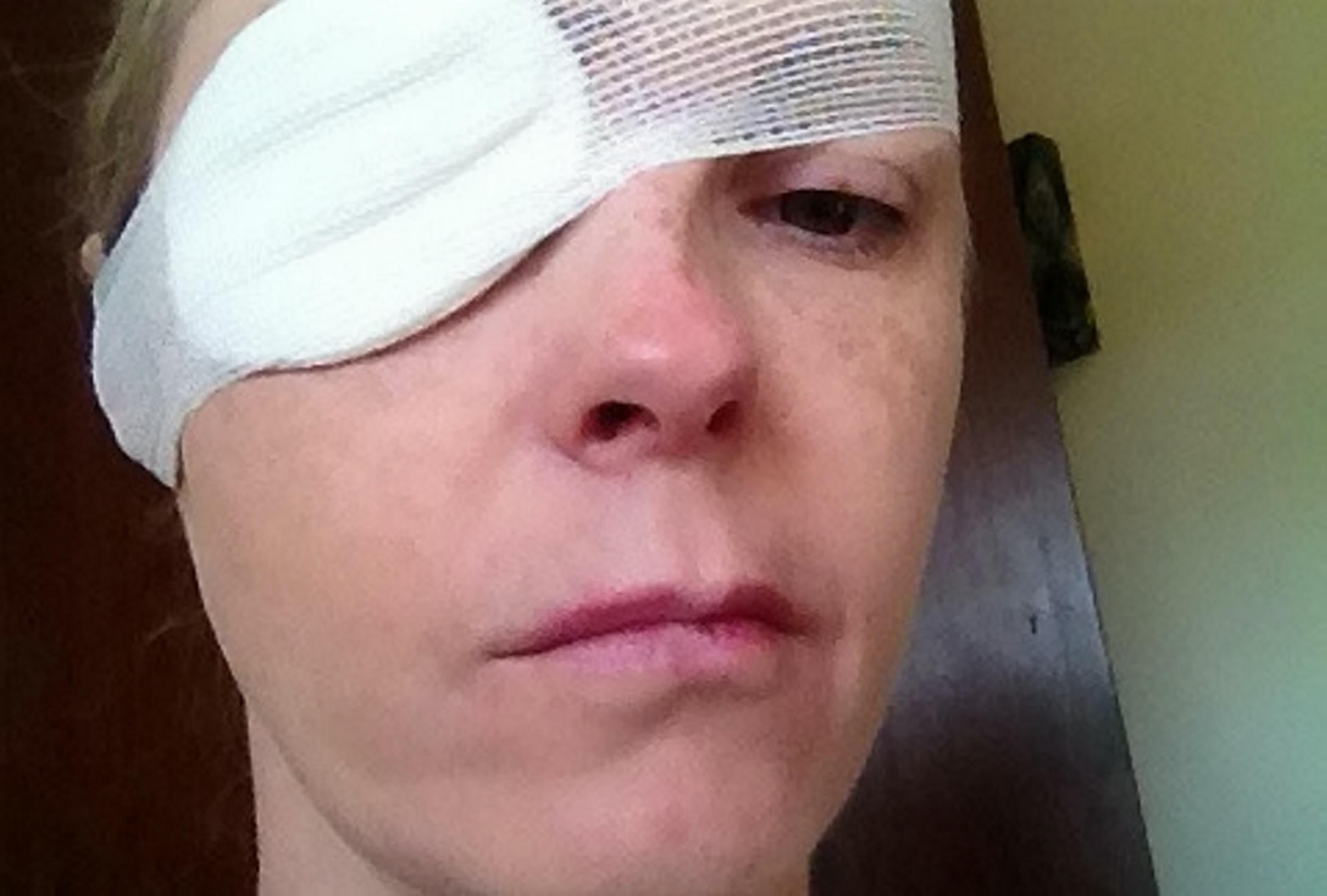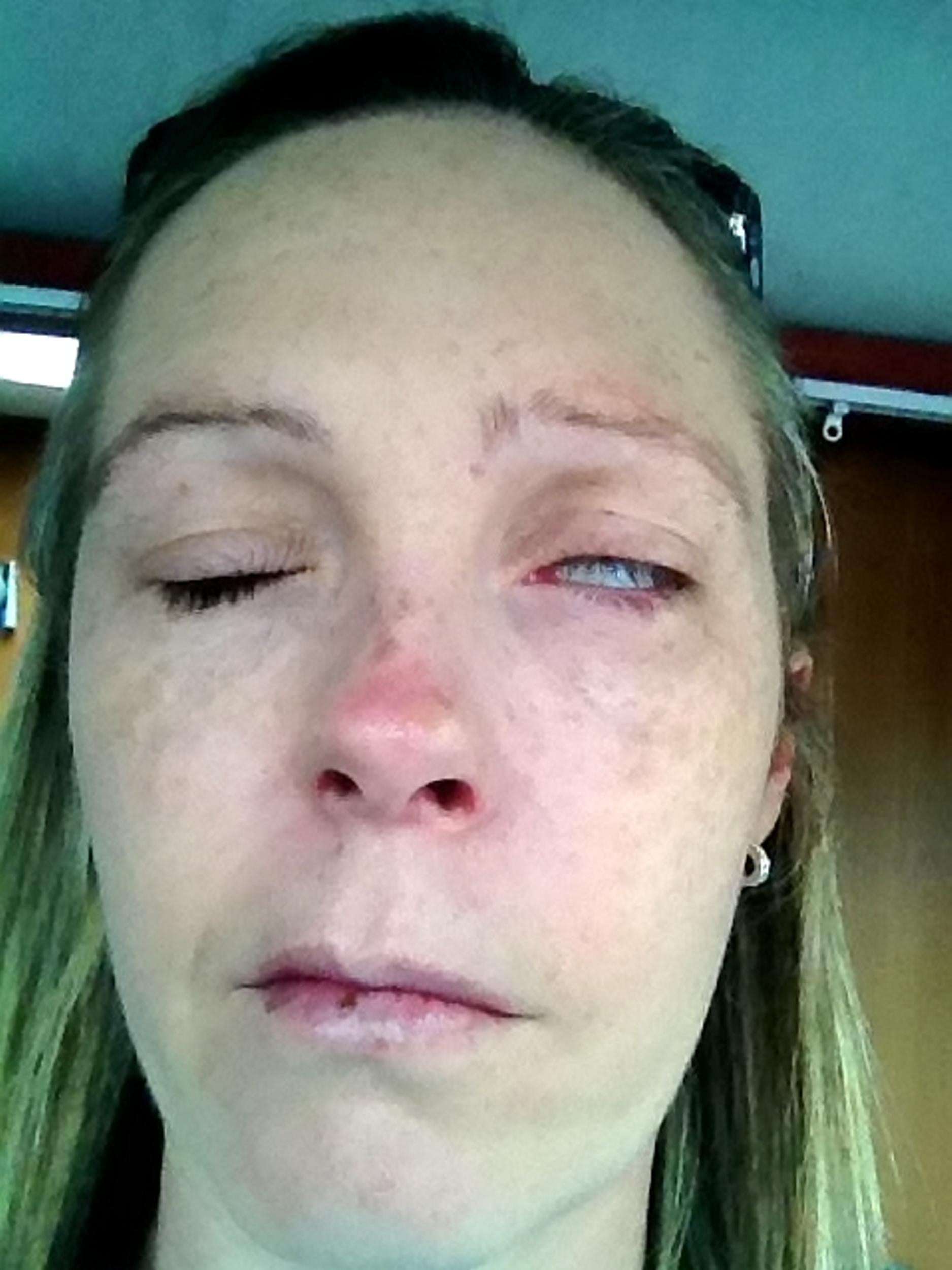Woman suffers facial paralysis after being bitten by tick in garden
‘Doctors told me that Lyme disease just doesn’t exist in Wales but I’m proof there is’

Your support helps us to tell the story
From reproductive rights to climate change to Big Tech, The Independent is on the ground when the story is developing. Whether it's investigating the financials of Elon Musk's pro-Trump PAC or producing our latest documentary, 'The A Word', which shines a light on the American women fighting for reproductive rights, we know how important it is to parse out the facts from the messaging.
At such a critical moment in US history, we need reporters on the ground. Your donation allows us to keep sending journalists to speak to both sides of the story.
The Independent is trusted by Americans across the entire political spectrum. And unlike many other quality news outlets, we choose not to lock Americans out of our reporting and analysis with paywalls. We believe quality journalism should be available to everyone, paid for by those who can afford it.
Your support makes all the difference.A woman was left with severe facial paralysis after being bitten by a tick on the neck in her garden at home.
Rachel Foulkes-Davies is a 43-year-old mother of three from Denbighshire, North Wales who previously worked as a day care coordinator.
Ms Foulkes-Davies had originally thought nothing of the insect bite, which occurred when she was sitting in her garden in June 2015.
While she had noticed a red mark on her neck at 2.30pm that same day, it was only when her face started to droop and her lip became numb a few days later that she knew that something had gone gravely wrong.
Ms Foulkes-Davies’ was initially diagnosed as having a Bell’s palsy, a condition that causes the muscles in the face to become temporarily weakened or paralysed, and given Prednisolone to soothe her symptoms.
However, as time went she gradually began losing the capacity to speak.
“The facial paralysis started with my lip going numb a few days after the bite,” Ms Foulkes-Davies explained.

“Then over the course of seven to eight months my ability to speak worsened.
“I couldn’t talk for two years. I was just living off of soups and stews and had to have them through a straw. The same went for hot drinks.”
Ms Foulkes-Davies was unable to close her eye properly until the end of the year, during which time she’d been completely incapable of feeling her eye twitching at all.
When she first visited Deeside NHS hospital explaining that she couldn’t shut her eye, she was given an eye patch to wear and discharged within a matter of hours.
Over the past three years, Ms Foulkes-Davies has suffered from constant fatigue and depression, which resulted in her leaving her job in December 2017.
While she’s regained her speech since the incident took place, she regularly has to cope with awful headaches and has blurred vision, which requires her to wear sunglasses when watching TV.
“I’m constantly tired and have no energy to do simple tasks,” she said.
“My face still droops when I’m tired or even if I can manage a wine and my eye twitches and squashes in when I eat. I’m very self conscious.”

Ms Foulkes-Davies has carried out extensive research and tests that indicate that she has Lyme disease.
However, the NHS has stated that her self-diagnosis is incorrect.
“Doctors told me that Lyme disease just doesn’t exist in Wales but I’m proof there is,” she said. “I don’t know why they’re trying to cover it up.
“If it was diagnosed straight away and treated with Doxycycline I wouldn’t have had to go through all this. Doxycycline just wouldn’t work now as I’m so far gone.
“The NHS has handed me information about private treatment but I have a family to provide for.”
Public Health England has stated that there are approximately 3,000 reported new cases of Lyme disease every year.
Lyme disease is a bacterial infection that can cause headaches, muscle and joint pain, fatigue, nerve problems and difficulty with concentration.
Join our commenting forum
Join thought-provoking conversations, follow other Independent readers and see their replies
Comments